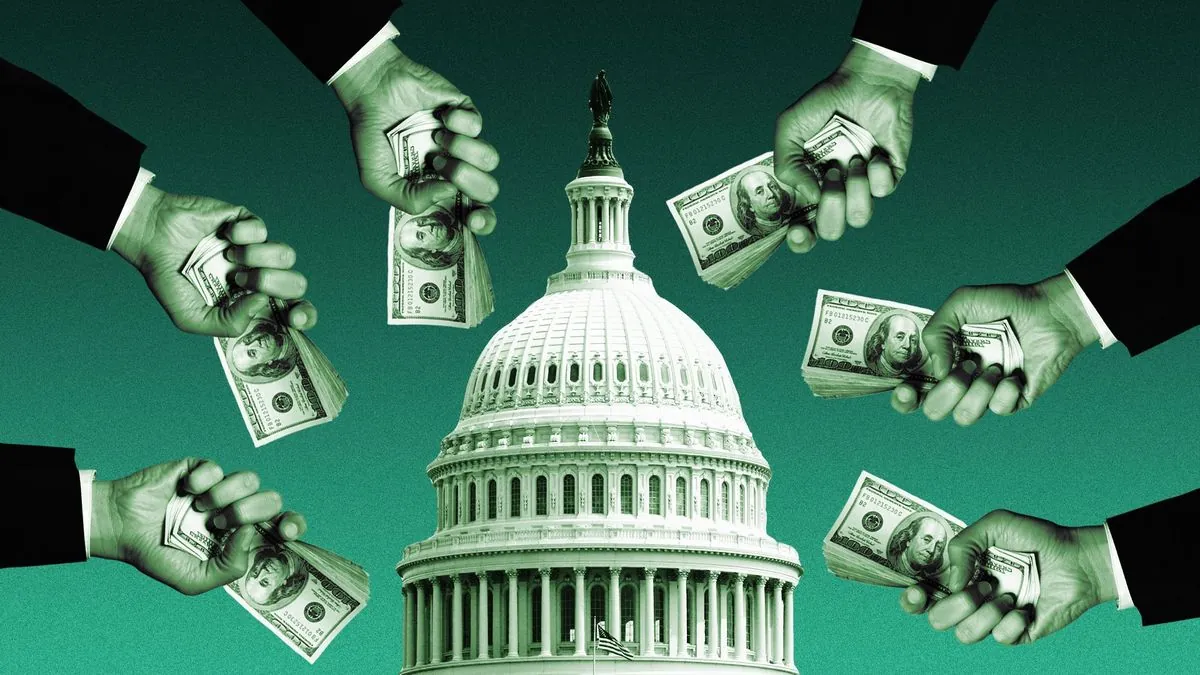U.S. Debt Crisis: The Urgent Need for Preparedness Planning
As U.S. debt approaches GDP levels, experts call for strategic planning to address potential economic collapse. Proposed conference aims to tackle fiscal challenges and prepare for possible social unrest.

As the summer of 2024 draws to a close, the annual cycle of intellectual gatherings in prestigious locations like Aspen and Chautauqua concludes. These events, which have been a tradition since the Aspen Institute's inception in 1949, typically focus on global issues such as geopolitical instability, technological advancements, and climate change. However, a pressing concern demands attention for future discussions: the looming U.S. debt crisis.
The national debt, which surpassed $31 trillion in October 2022, continues to grow at an alarming rate. With the current year expected to add nearly $2 trillion more, the debt is rapidly approaching the nation's entire Gross Domestic Product, which stood at approximately $25.46 trillion in 2022. This trajectory has led many economists to warn of a potential economic catastrophe.
A proposed conference for the summer of 2025 aims to address this critical issue head-on. The suggested focus would be on developing a comprehensive plan for managing the potential collapse of the U.S. public debt market and the dollar's status as the world's primary reserve currency, a position it has held since the 1944 Bretton Woods Agreement.
Key topics for this hypothetical conference would include:
- Prioritizing government spending cuts
- Exploring asset sales of federal properties
- Negotiating with creditors
- Addressing potential social unrest
The federal government owns significant assets that could be considered for monetization in a crisis scenario. These include approximately 28% of the total U.S. land area, valuable electromagnetic spectrum managed by the Federal Communications Commission, and over $1.6 trillion in federal student loans as of 2023.
Creditor negotiations would be a crucial aspect of crisis management. The United States, having never defaulted on its debt obligations, would need to navigate these waters carefully, potentially learning from experiences of other nations like Argentina, which has defaulted nine times since its independence in 1816.

One of the most challenging aspects of a debt crisis would be managing public reaction. The Social Security trust funds, projected to be depleted by 2034 according to the 2023 Trustees Report, could face earlier exhaustion in a severe economic downturn. Communicating benefit reductions to millions of Americans would likely spark significant social unrest.
In such a scenario, government officials might need to consider invoking emergency powers. The Insurrection Act of 1807, which empowers the President to deploy military forces domestically under certain circumstances, could come into play. Martial law, declared at least 68 times in U.S. history (mostly during the Civil War), might also be contemplated as a last resort.
The article's author criticizes the current administration for exacerbating the debt problem over the past 3½ years and calls for proactive planning. Drawing from business practices, the suggestion is made that the government should engage in "disaster scenario planning" to prepare for various contingencies, including a debt crisis.
"One would like to believe that a redbook plan for a national debt emergency rests, ready for implementation, in somebody's White House desk. But given that an effective response would require action across so many agencies — a "whole of government" approach, as the current administration likes to label its extralegal impositions — if such a plan had been assembled, odds are we'd know about it."
As the Congressional Budget Office projects that interest payments on the national debt could exceed defense spending by 2029, the urgency of addressing this issue becomes increasingly apparent. The proposed conference and subsequent planning efforts could prove crucial in mitigating the potential devastating effects of a U.S. debt crisis on both the national and global economy.


































